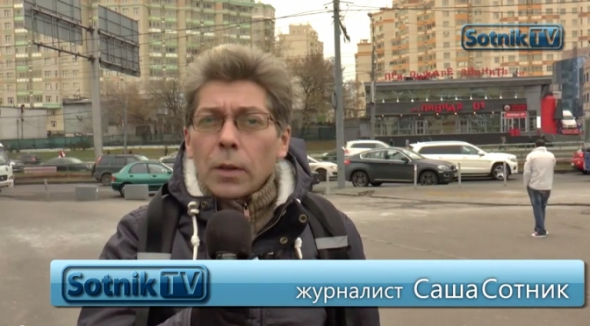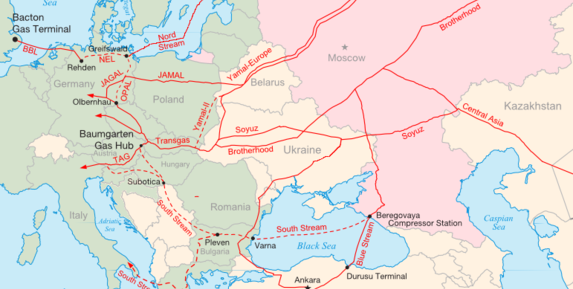Open appeal To the authorities of the Polish state, spiritual and cultural leaders and to the entire Polish society
Dear colleagues, The days of remembrance for the dead sons and daughters of our nations are approaching. The history of relations between Ukrainians and Poles carries many fraternal pages, but also numerous bloody conflicts. Among them, the tragedy of Volyn and the Polish-Ukrainian conflict during the Second World War, which destroyed thousands of innocent brothers and sisters in its abyss, is especially painful for both Ukraine and Poland. Killing innocent people cannot be justified. We ask forgiveness for committed crimes and wrongdoings - this is our main motive. We ask forgiveness and, equally, forgive the crimes and injustices committed against us. This is the only spiritual formula that must be the motive of every Ukrainian and Polish heart that seeks peace and understanding. Killings, torture, ethnic and religious humiliation, social exploitation and deportation - our nations know these words very well. We remember each of them. As long as our people live, the wounds of history will hurt them. But our people will only live if we learn to treat each other as equal counterparts, despite the past. The greatest evil of our relations was the inequality that came from Ukraine's statelessness. With fatal consistency, the disaster of Ukrainian statehood led to the ruination of the Polish state. This pattern is a tragic axiom of Ukrainian-Polish relations. The Ukrainian state has yet to develop a holistic and dignified attitude to its previous trials, their causes, and its own responsibility for the past and future. Polish opinion has yet to fully accept the uniqueness of the Ukrainian national tradition as a justified struggle for statehood and independence, which deserves respect. Let us finally accept each other with our thoughts and hearts. The most important monument to our nations will be not local pantheons, but hands extended towards each other. The modern war of Russia against Ukraine has brought together our people even more. Fighting against Ukraine, Moscow also takes the offensive against Poland and the entire free world. Today we would like to remind of this with particular alarm, and to warn politicians of both countries against the language of hatred and hostility, which could replace the Christian senses of forgiveness and understanding. The tragedies of the past require repentance. However, using mutual pain to settle political scores will perpetuate endless recriminations. Injustice will always return - against the graves, against memory, and against the future. We call upon our allies, the Polish national authorities and parliamentarians, to stop any reckless political declaration, the approval of which will not relieve pain, but permit our common enemies to use it against Poland and Ukraine. Let us have no doubt that our foes will come after both communities. Let us also remember that Kyiv and Warsaw are the strategic eastern support pillars of all Europe. We must realize that the example of our mutual understanding is able to become a model for the entire European space. On the eve of commemorative events that will begin in July in both countries, we encourage to return to the tradition of joint parliamentary appeals that do not divide but unite us in repentance and forgiveness. Guided by the spirit of brotherhood, we appeal to you to establish a mutual common Day of Remembrance for the victims of our past, and faith in the nonrepetition of evil. An eternal and worthy memory of what is most holy to us depends on a great and wise understanding between us, made for good. We believe that our voice will be heard by Polish society.- Leonid Kravchuk, President of Ukraine (1991-1994)
- Viktor Yushchenko, President of Ukraine (2005-2010 years)
- Patriarch of Kyiv and All Rus-Ukraine Filaret, Ukrainian Orthodox Church Kiev Patriarchate
- Sviatoslav Shevchuk, major archbishop of the Ukrainian Greek Catholic Church
- Viacheslav Bryukhovetskyi, literary critic, Honorary President of National University of Kyiv-Mohyla Academy
- Ivan Vasyunyk, co-chairman of the Public Committee to commemorate the victims of the Holodomor-genocide of 1932-33, Vice Prime Minister of Ukraine (2007-2010)
- Ivan Dziuba, academician, scholar, public figure
- Danylo Lubkivskyi, Deputy Minister of Foreign Affairs of Ukraine (2014)
- Dmytro Pavlychko, poet, social and political activist, Ambassador
- Volodymyr Panchenko, literary critic, writer, professor, National University of Kyiv-Mohyla Academy
- Myroslav Popovych, Academician, philosopher, director of the H. S. Skovoroda Institute of Philosophy
- Vadym Skurativskyi, art historian, literature critic, academician of the National Academy of Arts of Ukraine
- Ihor Yukhnovskyi, academician, the first head of the Ukrainian Institute of National Memory
Related:
- Polish religious leaders support Ukrainian letter of repentance for Volyn
- The Volyn Tragedy: Reconciliation or Confrontation?
- Ukraine and Poland to investigate Volyn tragedy in joint historical commission
- Kremlin trolls are engaged in massive anti-Ukrainian propaganda in Poland
- Pro-Russian activism of Mateusz Piskorski, detained in Poland





